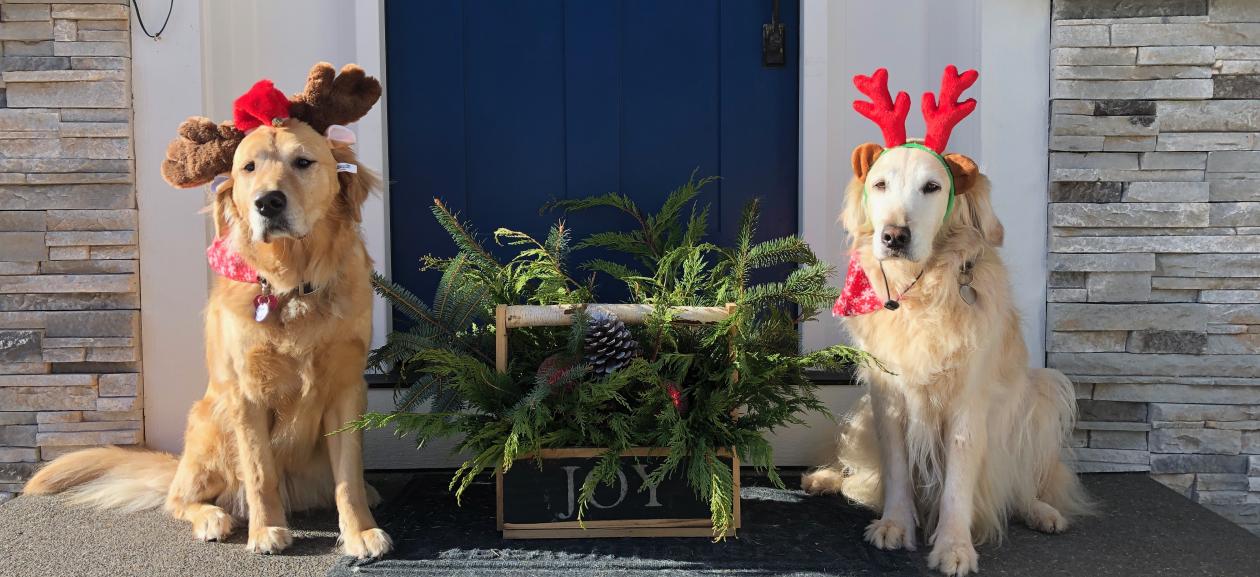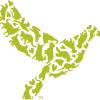
Holiday Hazards for Your Pet
The holiday season is here! It's a time for festive lights, cozy nights with hot cocoa, and indulging in your favorite treats. But amidst all the holiday cheer, don’t let an emergency trip to the vet dampen your spirits. With all the added fun, there are also added risks for your animal family members. Here are some common holiday hazards and tips to keep your pets safe and happy this season.
Food Hazards
Turkey and Turkey Bones
Sharing holiday meals with pets can be risky. Turkey or turkey skin can trigger pancreatitis, a potentially life-threatening condition. Turkey bones are especially dangerous—they can splinter and cause punctures or blockages in your pet’s digestive tract. Keep turkey and leftovers out of reach and secure food scraps in tightly sealed garbage bags.
Chocolate and Other Sweets
Chocolate, particularly dark chocolate, is toxic to pets. Xylitol, an artificial sweetener found in gum and some baked goods, can also be deadly to dogs and cats. Always keep sweets covered and out of reach.
Alcohol
Alcoholic drinks aren’t the only hazard—raw bread dough can be dangerous too. Yeast in the dough ferments in the stomach, producing ethanol and carbon dioxide, which can lead to alcohol poisoning. Symptoms include vomiting, lethargy, weakness, and staggering. Keep alcohol and dough away from curious pets.
Table Scraps
Leftovers may contain ingredients that are toxic to pets, including onions, garlic, raisins, and grapes. Instead of sharing your meal, consider safe festive treats like unseasoned pumpkin, carrots, or sweet potato.
Decoration Dangers
Christmas Tree Stability
Pets are naturally curious about shiny ornaments and twinkling lights. Secure your tree or place it in an area that is less accessible.
Christmas Tree Water
Some trees are treated with chemicals, which can seep into the water and become toxic. Stagnant water can also harbor bacteria. Prevent pets from accessing tree water.
Cords from Holiday Lights
Electrical cords can cause burns or electric shocks if chewed. Keep cords out of reach or covered with protective tubing.
Decorative Plants
Seasonal plants such as mistletoe, holly, and poinsettias can cause vomiting, diarrhea, and other health issues if ingested. Use pet-safe decorations or place these plants out of reach.
Candles
Never leave pets unattended near lit candles. Battery-operated candles are a safer alternative.
Tinsel and Ribbon
Tinsel and ribbon can cause serious digestive problems, especially for cats. Avoid tinsel and keep ribbons stored safely.
Ornaments
Glass or sharp-edged ornaments can be hazardous if broken or chewed. Use shatterproof ornaments and place fragile decorations higher on the tree.
Liquid Potpourri
Cats may be drawn to liquid potpourri, which can burn fur and mouths and cause gastrointestinal upset if ingested. Keep this out of reach.
Celebration Precautions
New Year’s Distractions
Confetti, noisy poppers, and fireworks can be harmful. Confetti may cause blockages if ingested, and loud noises can frighten pets, making them try to run away. Keep pets in a quiet, secure space during celebrations.
Houseguests
Visitors and holiday activity can stress pets, sometimes causing vomiting or other stress-related issues. Provide a quiet retreat where pets can relax safely away from the festivities.
Watch the Exits
With doors opening frequently, pets may slip outside unnoticed. Ensure their microchip and ID tag information are up to date. If a pet gets lost, use resources like the DoveLewis Lost and Found Database.
Holiday Travel
When traveling with pets, secure them in a harness or carrier during car rides. Never leave them alone in a vehicle. Bring essentials such as food, medications, and first-aid supplies. For boarding, consult your veterinarian about vaccine status and protection against contagious diseases like canine influenza.
If you suspect your pet has ingested something harmful, contact your veterinarian or the ASPCA Animal Poison Control Center at 1-888-426-4435 immediately. For 24/7 veterinary care, come to DoveLewis or call us at 503-228-7281 if you notice signs of distress, such as sudden behavioral changes, vomiting, or diarrhea.
By staying vigilant and taking a few extra precautions, you can ensure a joyful and safe holiday season for both you and your beloved pets!
Recent Posts
Holiday Hazards for Your Pet
Deck the halls with boughs of holly … but be sure it’s out of reach of your furry friends! It’s easy to get swept up in the festivities of the season, but don’t forget that added fun means added risks for your pets.
Why Chocolate Is So Risky for Pets
Milk or dark, candy or cake – chocolate may be one of our favorite sweet treats, but it’s definitely not meant to be consumed by our pets.




